15 + 29 points
Discovering What Doesn't Change by Sombrero Guy
June 15th, 2009 1:24 AM
At first glance, this task seems easy. At second glance, it seems impossible.
Disclaimer: To find out at which point between these two extremes the task lay, I went into my head and thought about this rather than doing any physical searching. The result of my thoughts is a mainly text-based and rather boring praxis, which you would probably do better to ignore. It is almost entirely theoretical, or speculation. I suppose it's more an essay than a praxis, really. And not even a particularly good essay. I have tried to put in a few pictures from my archive for those who choose to continue, to add a little colour.
This whole task was just me sitting in front of a computer for an hour or so, thinking, and transfering some of the thoughts onto the screen. I like thinking. Thinking is something I'm good at. This is a kind of transition task to keep my mind active while I seek inspiration for more interesting praxes. I'm sure there are interesting ways to complete this task which venture outside of thoughts and into the real world, but I couldn't think of a way to do this.
I'm sorry, and hopefully some more interesting tasking will be occuring soon.
What can we count as time? For how long does something have to be unaffected to qualify?
We could say our lifetimes. Many things may seem to be unchanged within our lifetimes, which is why this task initially seems quite easy. But then you think. Throughout our lifetimes, our perceptions change. We constantly change. We learn and discover new things, which change us in small ways. We are continually aging.
Then look at other things we see around us. Surely most of it has always been there? But, when you think about it, you see the evidence of change in things you may find familiar. Ruins have always been ruins to us, but we know that they were once buildings.

We could put a figure on the time we look at. But what? A hundred; a thousand; a million years? This is where the task starts to look impossible. We are looking for something which has remained unchanged for all eternity.
I start this search at home. Can it be said that my house has not changed over time? Well, no. Even in the five years I've lived in it changes have been made. And not just small ones; a full loft conversion is the largest change we have made. Changes have been made in decoration, flooring and furnature. A pond has been dug in the garden, a tree felled and a new one planted. Nothing here has stayed the same for long. The house is only about a century old as it is. Before it was built, the area was probably a normal countryside landscape.
Moving out a little, I come to Queen's Park.

Parks sound like they should be natural, unspoiled by construction. Yes, there aren't many buildings on the park, but it is not unchanged. It's a golf course. Human activity has shaped and influenced the land, and the trees have been carefully positioned, or ones in the way removed. The trees themselves constantly grow, changing the landscape. It probably hasn't been the same for a decade, let alone all of time.
In fact, go back a couple of hundred years and in the spot occupied by the entire town of Bournemouth would be very little evidence of human activity. Basically, anywhere where there is life, changes will never cease. Things on the surface change rapidly with human and natural activity, and never remain constant for more than a few years, so I must look elsewhere for something untouched.
Now I move on to geology. Those cliffs on the seafront look pretty resistant, right?
No. They constantly crumble. Erosion works slowly most of the time, so we don't notice the changes. Locally to me is Poole bay. On one side is the Isle of Wight and on the other is a headland which forms the boundary with Swanage bay.


On one side are the Needles, on the other Old Harry rocks. Two locally famous landforms caused by erosion of the chalk cliffs. Go back thousands of years and these two headlands were connected by a large band of chalk rock. What is now Poole bay was land, as shown in the map below. The dotted line is the present coastline, and I have added in the locations of some towns.
(A rather detailed account of the geological history can be found here, if it interests anyone at all)
On an even larger scale, we can't even say the continents are constant. They are always moving, slowly, drifting across the moltern centre of the planet. Once there was only one continent. Then it gradually split apart, leaving examples such as the famously matching coasts of South America and Africa. So we can't even trust the ground beneath our feet to give us our answer.
I then examine the universe. According to the theory, it all started at a certain point, and is expanding outwards. But what was there before? Nothing? Was it the same nothing which makes up the vacuum of space now? Could we say that this "nothing" is a temporal constant? It's open to debate.
If the whole universe is expanding, obviously there is constant change. Possibly the only physical non-changing place is the very point where it all started. At the centre of expansion, it would not move.
But all that is too theoretical. I want something less debatable.
So, if nothing physical can be described as untouched by the ravages of time, what about other things? I have to look at ideas and concepts that we use. A few examples are:
Language
Language is almost alive. It adapts and changes over time, and to different situations. It cannot be said to be untouched by time, because it evolves through generations.
Truth
There is of couse the whole question of whether truth is what's real or what we believe to be real, but I honestly cannot be bothered. As I see it, it was the truth, for example, several hundred years ago, that the Earth was the centre of the universe. Then Copernicus said it wasn't and his theory turned out to fit more with observations made of the movement of stars and planets relative to the Earth, so now it is the truth that the Earth orbits the Sun. Basically, truth can change, so is not resistant to time.
Science
Well, the laws of physics we have accepted seem to make sense (what I know of them at least), but I know there is debate within scientific communities over many areas of science. Was Einstein right or not about relativity? I can't answer that, but the uncertainties in this matter make the temporal consistancy of our science seem unlikely.
Mathematics
Arguably the basis of most things, but still just a human concept derived to make sense of the world. However, unlike the other concepts I've considered, maths seems far more constant. One plus one will always equal two, I hope. Differentiating 3x+4 should never give any answer but 3. While some areas are still uncertain, I think that pure mathematics is the closest of our concepts to being completely resistant to time.
Yes, it is a human concept, at least the way we write it. However (and this is true of science as well), there must be some kind of natural laws governing the universe. We may not know them properly, or understand them, but they are there; the reasons our world works as it does. These would, I imagine, remain constant. But that is entirely theoretical.
Time
I think this is the one definate answer. No matter how much time passes, it will still carry on passing. Time cannot be stopped over time. If time were to stop, it would not have been affected by the ravages of time, because there would be no time to have affected it. Time's march is relentless, and while it shapes and changes everything else, it continues regardless.
This may not actually make sense. I know exactly what I'm trying to say, but I cannot sufficiently put it into words.
But I think I have found something which is untouched by the ravages of time. Time itself.
Feel free to pick holes in everything written above. I'm sure there are many to be found.
Disclaimer: To find out at which point between these two extremes the task lay, I went into my head and thought about this rather than doing any physical searching. The result of my thoughts is a mainly text-based and rather boring praxis, which you would probably do better to ignore. It is almost entirely theoretical, or speculation. I suppose it's more an essay than a praxis, really. And not even a particularly good essay. I have tried to put in a few pictures from my archive for those who choose to continue, to add a little colour.
This whole task was just me sitting in front of a computer for an hour or so, thinking, and transfering some of the thoughts onto the screen. I like thinking. Thinking is something I'm good at. This is a kind of transition task to keep my mind active while I seek inspiration for more interesting praxes. I'm sure there are interesting ways to complete this task which venture outside of thoughts and into the real world, but I couldn't think of a way to do this.
I'm sorry, and hopefully some more interesting tasking will be occuring soon.
What can we count as time? For how long does something have to be unaffected to qualify?
We could say our lifetimes. Many things may seem to be unchanged within our lifetimes, which is why this task initially seems quite easy. But then you think. Throughout our lifetimes, our perceptions change. We constantly change. We learn and discover new things, which change us in small ways. We are continually aging.
Then look at other things we see around us. Surely most of it has always been there? But, when you think about it, you see the evidence of change in things you may find familiar. Ruins have always been ruins to us, but we know that they were once buildings.

We could put a figure on the time we look at. But what? A hundred; a thousand; a million years? This is where the task starts to look impossible. We are looking for something which has remained unchanged for all eternity.
I start this search at home. Can it be said that my house has not changed over time? Well, no. Even in the five years I've lived in it changes have been made. And not just small ones; a full loft conversion is the largest change we have made. Changes have been made in decoration, flooring and furnature. A pond has been dug in the garden, a tree felled and a new one planted. Nothing here has stayed the same for long. The house is only about a century old as it is. Before it was built, the area was probably a normal countryside landscape.
Moving out a little, I come to Queen's Park.

Parks sound like they should be natural, unspoiled by construction. Yes, there aren't many buildings on the park, but it is not unchanged. It's a golf course. Human activity has shaped and influenced the land, and the trees have been carefully positioned, or ones in the way removed. The trees themselves constantly grow, changing the landscape. It probably hasn't been the same for a decade, let alone all of time.
In fact, go back a couple of hundred years and in the spot occupied by the entire town of Bournemouth would be very little evidence of human activity. Basically, anywhere where there is life, changes will never cease. Things on the surface change rapidly with human and natural activity, and never remain constant for more than a few years, so I must look elsewhere for something untouched.
Now I move on to geology. Those cliffs on the seafront look pretty resistant, right?
No. They constantly crumble. Erosion works slowly most of the time, so we don't notice the changes. Locally to me is Poole bay. On one side is the Isle of Wight and on the other is a headland which forms the boundary with Swanage bay.


On one side are the Needles, on the other Old Harry rocks. Two locally famous landforms caused by erosion of the chalk cliffs. Go back thousands of years and these two headlands were connected by a large band of chalk rock. What is now Poole bay was land, as shown in the map below. The dotted line is the present coastline, and I have added in the locations of some towns.
(A rather detailed account of the geological history can be found here, if it interests anyone at all)

On an even larger scale, we can't even say the continents are constant. They are always moving, slowly, drifting across the moltern centre of the planet. Once there was only one continent. Then it gradually split apart, leaving examples such as the famously matching coasts of South America and Africa. So we can't even trust the ground beneath our feet to give us our answer.
I then examine the universe. According to the theory, it all started at a certain point, and is expanding outwards. But what was there before? Nothing? Was it the same nothing which makes up the vacuum of space now? Could we say that this "nothing" is a temporal constant? It's open to debate.
If the whole universe is expanding, obviously there is constant change. Possibly the only physical non-changing place is the very point where it all started. At the centre of expansion, it would not move.
But all that is too theoretical. I want something less debatable.
So, if nothing physical can be described as untouched by the ravages of time, what about other things? I have to look at ideas and concepts that we use. A few examples are:
Language
Language is almost alive. It adapts and changes over time, and to different situations. It cannot be said to be untouched by time, because it evolves through generations.
Truth
There is of couse the whole question of whether truth is what's real or what we believe to be real, but I honestly cannot be bothered. As I see it, it was the truth, for example, several hundred years ago, that the Earth was the centre of the universe. Then Copernicus said it wasn't and his theory turned out to fit more with observations made of the movement of stars and planets relative to the Earth, so now it is the truth that the Earth orbits the Sun. Basically, truth can change, so is not resistant to time.
Science
Well, the laws of physics we have accepted seem to make sense (what I know of them at least), but I know there is debate within scientific communities over many areas of science. Was Einstein right or not about relativity? I can't answer that, but the uncertainties in this matter make the temporal consistancy of our science seem unlikely.
Mathematics
Arguably the basis of most things, but still just a human concept derived to make sense of the world. However, unlike the other concepts I've considered, maths seems far more constant. One plus one will always equal two, I hope. Differentiating 3x+4 should never give any answer but 3. While some areas are still uncertain, I think that pure mathematics is the closest of our concepts to being completely resistant to time.
Yes, it is a human concept, at least the way we write it. However (and this is true of science as well), there must be some kind of natural laws governing the universe. We may not know them properly, or understand them, but they are there; the reasons our world works as it does. These would, I imagine, remain constant. But that is entirely theoretical.
Time
I think this is the one definate answer. No matter how much time passes, it will still carry on passing. Time cannot be stopped over time. If time were to stop, it would not have been affected by the ravages of time, because there would be no time to have affected it. Time's march is relentless, and while it shapes and changes everything else, it continues regardless.
This may not actually make sense. I know exactly what I'm trying to say, but I cannot sufficiently put it into words.
But I think I have found something which is untouched by the ravages of time. Time itself.
Feel free to pick holes in everything written above. I'm sure there are many to be found.
Historical geology of Poole and Christchuech bays
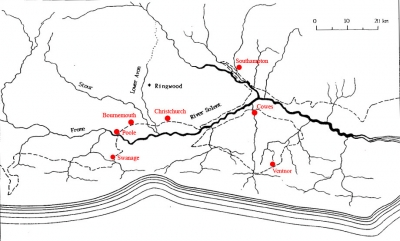
Fascinating reading for anyone who likes that sort of thing (I mainly just looked at the maps)
10 vote(s)
1











Spidere
1
Heathcliff
1
teucer
4
Ben Yamiin
2
MonkeyBoy Dan
3
Flea
5
Adam
4
Rao
3
Max S
5
Picø ҉ ØwO
Terms
(none yet)4 comment(s)
posted by Adam on June 16th, 2009 12:07 PM
Nicely done. Im ashamed to say I can't enjoy it as much as I should since the geography of the Poole Harbour area is totally ruined for me by A Level Geography case studies.
posted by Max S on September 4th, 2009 9:56 AM
i tend to agree on math being constant - a lot of things are derived out of math and logic, which im sure existed long before society could even think of inventing it... long before even society existed.


























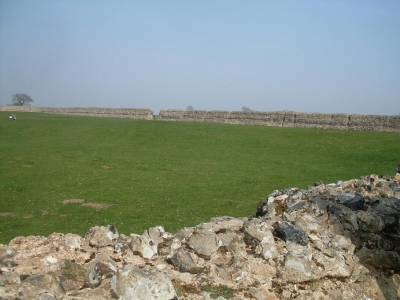
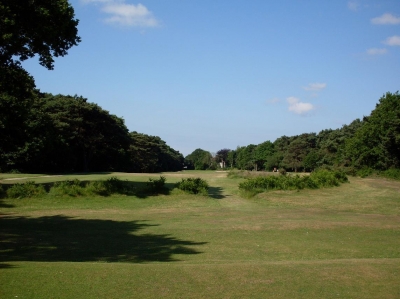
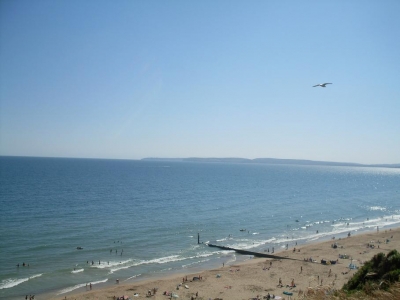
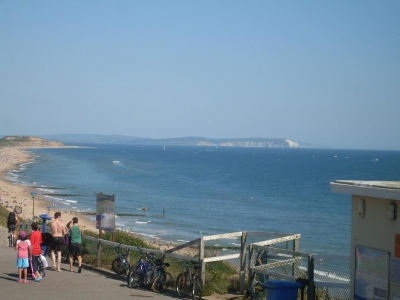



An interesting Gedankenexperiment garners you two of my votes.
Sorry to say, even the passing of time is not unchanging, Einsteinian special relativty predicts that speed of travel and gravity affect the rate of flow of time, and the first of those has been proven experimentally.
Within the event horizon of a black hole time may stop altogether and certain interpetations of spacetime, including that of Stephen Hawking, say that it may be possible that time could be flowing backwards right now in vastly distant reaches of the universe.